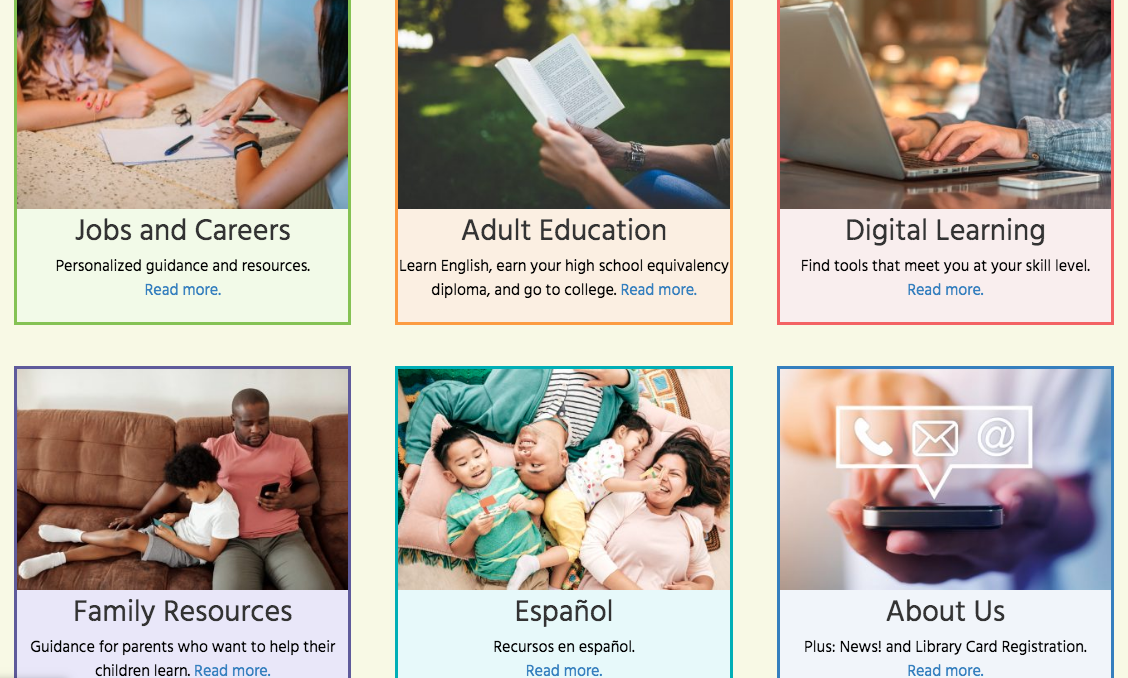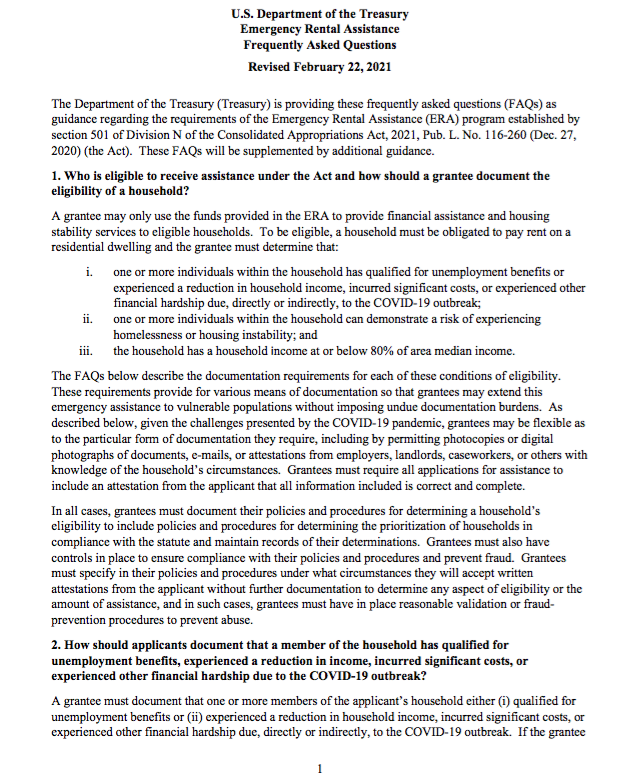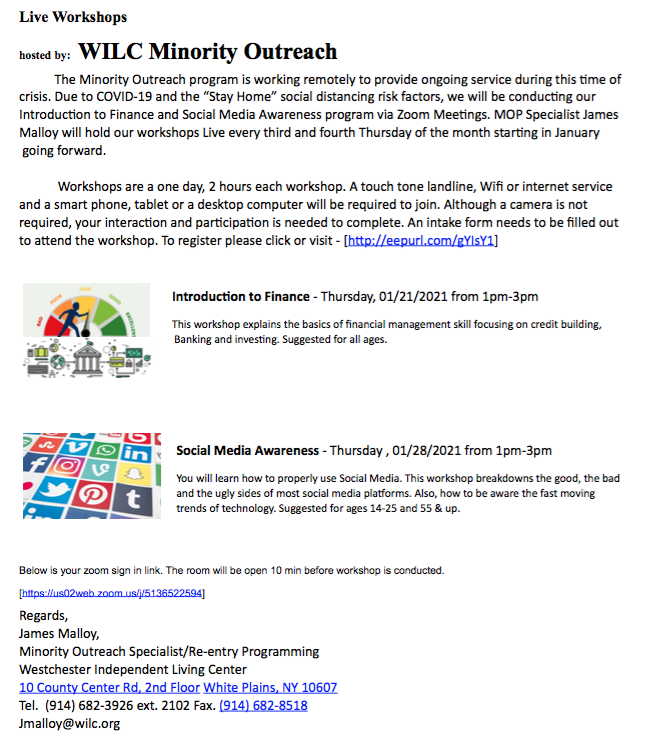Statement about Service from Andrew Saul, Commissioner of Social Security
“I want to update you about how things are going at the Social Security Administration.
About a year ago, I took the unprecedented step to close our offices to the public. I did this to keep our employees and you—the public we serve—safe. As we enter year two of the COVID-19 pandemic, vaccines and other precautionary measures give us cause for hope. For now, we will continue our current safety measures as described in our COVID-19 Workplace Safety Plan. This plan is iterative, and we will update it as we receive additional government-wide guidance and information from public health experts in the Centers for Disease Control and Prevention.
Like many businesses and organizations, the pandemic has forced us to adapt. I want to thank our employees for their willingness to embrace innovative ways of working while we continue to deliver our mission. As we examine our work in a new light, we are asking which lessons learned could improve service beyond the COVID-19 pandemic.
We understand that the public wants to engage with us on some matters in person, and our local offices are integral to our communities. We also know that not everyone can conveniently come to us in person and that when you do visit, you want the process to be efficient. For example, we may need evidence from you, but we do not need to interview you in person. We are currently testing drop box and express appointment options for the public to bring in documentation.
Often, you only need to know your Social Security number and do not need a physical Social Security card. However, if you do need to replace your card, we are testing video appointments if you need a new Social Security card but do not need to change any of the information in our records. Although ideas like these began as solutions during COVID-19, we are considering how they could improve service in the future.
Some of these concepts also allow us to consider how we might continue to use telework, something that most organizations and companies have depended on during the COVID-19 pandemic, to drive longer-term operational efficiencies like reducing space. We could use those savings to provide you more online service options and hire more people to serve you more quickly as well as to retain outstanding employees. We will continue to engage our managers, employees, and unions on ways we could use telework to improve customer service and other issues.
We often note that Social Security touches the lives of nearly every American. Be assured that as we continue to evolve, we are committed to serving everyone including our most vulnerable populations who often require in person assistance. We are working with the White House Office of Faith-Based and Neighborhood Partnerships, claimant advocates, and other organizations to ensure our services are accessible to people with low income, limited English proficiency, mental illness, or facing homelessness. We recently added online tools and information pages to our website including:
Online resources for People Helping Others access our services;
Online Outreach Materials for Partner Groups; and
Updated information for Faith-Based and Community Groups including a new toolkit.
As we contemplate the future, we are delivering now. To help improve deteriorating service, we have added over 6,000 frontline employees to help you. We decreased the average wait to talk to our 800 Number agents by one-third and reduced the agent busy rate by over 50 percent in the last two years, and our 800 Number agents handled 1.6 million more calls than they did a year ago.
During the pandemic, we shifted service to the telephone where local office employees answered 13 million more calls last year than they did in fiscal (FY) 2019. They answered your calls in under 3 minutes on average compared to an average wait of nearly 24 minutes in FY 2019.
For individuals who were denied benefits and requested an appeal, we quickly shifted to holding hearings by telephone at the start of the pandemic and then added online video hearings. During the pandemic, we have continued to reduce the number of people waiting for a hearing to 376,000 at the end of February 2021, the lowest level in nearly 20 years. We reduced the average wait for a hearing by over 9 months in the last two years. If you are still waiting for a hearing, please consider scheduling by telephone or video. You can find out more information about telephone hearings here and video hearings here.
The pandemic has significantly disrupted parts of our disability process, particularly at the state Disability Determination Services (DDS) that make disability determinations for us. We have provided the DDSs with additional hiring and overtime to help address a significant increase in pending initial disability cases. The DDSs have been able to reduce the number of people waiting for a decision on initial disability claims by about 100,000 cases since the height of the pending cases in August 2020. In order to make initial disability decisions as quickly as possible, and to reduce the burden on the medical community still stressed from the pandemic, we have focused our limited resources on completing initial requests for disability benefits and have reduced the number of continuing disability reviews we are conducting.
We have made some notable improvements to our online services:
Our redesigned Retirement Benefits Portal helps you prepare and apply for retirement benefits, with clearer, simplified information.
We improved our registration process for our online my Social Security account – more than one million people will register for an account this month.
Our Message Center allows people with a my Social Security account to access notices online instead of by mail.
We implemented an online payment option for people to repay debts to Social Security.
We expanded our online Social Security card replacement service to almost all states. If you need to replace your card, you can request a replacement through your my Social Security account if you:
Are a U.S. citizen age 18 years or older with a U.S. mailing address;
Are not requesting a name change or any other change to your card; and
Have a driver's license or a state-issued identification card from one of 45 participating states or the District of Columbia. If your state does not yet participate in this service, check back soon. More states are added regularly.
The entire team at Social Security is working hard to serve you. We thank you for your patience during the COVID-19 pandemic and we look forward to welcoming you back in our offices when it is safe to do so. We also look forward to continuing to improve all of our service channels to provide you with convenient options to do business with us.”














